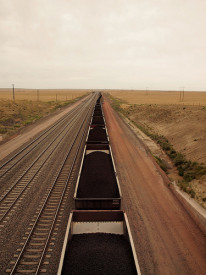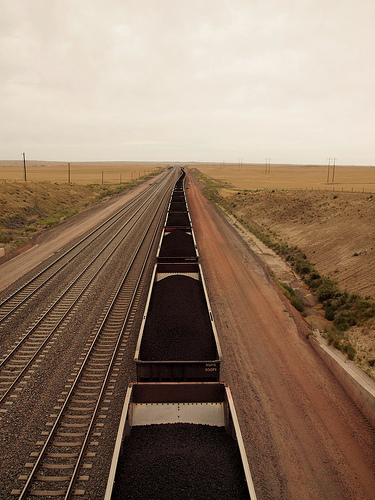
It’s been a busy—and from my standpoint, mostly heartening—few weeks on the coal export front. When you string together all the new developments, there are more and more signs that coal export proposals are on the ropes.
Here’s a quick summary of the Terrible, Horrible, No Good, Very Bad Fortnight for would-be Pacific Northwest coal exporters:
- March 24, 2013 (Seattle, WA): WA Governor Jay Inslee and Oregon Governor John Kitzhaber submitted a letter asking the Obama Administration to review the climate-change consequences of leasing and exporting Western coal. The governors urged a comprehensive analysis of the impacts of long-term investment in coal generation in Asia; raised questions about low lease rates on federal lands; and argued that the pollution and climate impacts from the expansion of coal leasing on federal lands would “dwarf almost any other action that the government could take in the foreseeable future.” The Seattle Times has more details.
- Friday, March 29, 2013 (Port of Morrow, OR): Ambre Energy, a financially troubled Australian startup, got into a public fight with Oregon’s Department of Environmental Quality accusing it of unfairly delaying permits. In its public statements, Ambre signaled that it needs those permits to attract investment: “If we move forward with the DEQ permit, we can show to our investors that there is a regulatory (system) in this state that moves forward, that has clarity.” Ambre had earlier demanded that the Oregon Department of State Lands issue its approval for the project; the company backed down and agreed to a five month extension (to September 1, 2013), after the state signalled that it was prepared to deny the permit outright.
- Sunday, March 31, 2013 (Seattle): A federal judge ordered culvert repairs to ensure Pacific Northwest tribes have fish to catch, as guaranteed by their treaty rights. Although not directly related to coal exports, this case concretely shows the tremendous legal leverage that tribes have over developments that potentially affect fisheries resources and habitat. This is especially important given the strong and unified opposition that Northwest tribes have expressed to coal export terminals.
- Monday, April 1, 2013 (Coos Bay, OR): This is a biggie: California-based Metro Ports announced that it has given up on its proposed Coos Bay coal export terminal. Last month the other two proponents, Japanese-based Mitsui Company and Korean Electric Power Corporation, backed out of the project. Over the weekend, Metro Ports—the last remaining partner—allowed its exclusive negotiating contract with the Port to expire. Port officials don’t seem to hold out hope that the project will be revived; according to its CEO, “The port is moving on to the next phase.”
- Monday, April 1, 2013 (Bellevue, WA): The lead agencies for the Environmental Impact Statement for the proposed Gateway Pacific Terminal released a scoping report summarizing the approximately 124,000 comments collected online, in writing, and at in-person scoping meetings. After reviewing the comments and conducting internal policy reviews, the co-lead agencies will determine the scope of the EIS. The release of the scoping report signals that the EIS process is moving forward—yet the summary clearly demonstrates just how much public opposition the Gateway proposal faces.
- Monday, April 1, 2013 (Portland, OR): Oregon Public Broadcasting (OPB) released an extensive report on the rail capacity and congestion issues related to coal exports. The headline—“Northwest Railroads Will Need Improvements To Handle Coal Trains”—speaks volumes. The report draws on information from a 2011 WSDOT rail capacity assessment; raises concerns about conflicts and congestion—particuarly the conflicts between coal trains and other rail cargo; and itemizes many of the costly infrastructure upgrades that would be needed to handle a massive boost in rail traffic.
- Tuesday, April 2, 2013 (Seattle, WA): The Sierra Club and other groups sent a 60-day notice of intent to sue Burlington Northern Santa Fe Railway (BNSF) and several coal companies for violations of the federal Clean Water Act. Figures from BNSF itself suggest that coal trains traveling through Washington currently lose 120 tons of coal dust every day. The prospect of significantly increased volume of coal trains would just boost that amount—making this lawsuit partiuclarly salient.
Hat tip and heartfelt thanks to Craig Toohey and Ross MacFarlane for compiling this roundup!


Comments are closed.